News & Media
Sparking conversations around climate change in universities
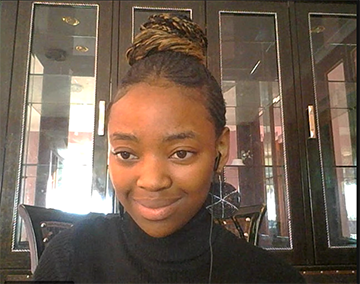
Ayakha Melithafa giving a presentation on climate change in the South African context
On 10 June 2022, Unisa’s Quality Assurance and Enhancement Department hosted an online presentation to discuss the effects of climate change in South Africa and possible ways to fight it. Dr Thelma Louw, Head of the Sustainability, Monitoring and Evaluation Directorate, welcomed the audience by saying it was befitting for organisers to invite a young speaker in recognition of Youth Month.
Speaking at the event, Ayakha Melithafa, a Pan African climate activist, said universities have a great role to play in educating and raising awareness around issues of climate change. Melithafa is the founder of the Ayakha Melithafa Foundation, a public representative of the African Climate Alliance, and the youngest commissioner on the Presidential Climate Commission in South Africa, which is an independent, statutory, multistakeholder body established by President Cyril Ramaphosa.
Melithafa said South Africans have concrete evidence of climate change in the form of the recent Durban floods. She added that the Cape Town drought was a wakeup call for her. "It affected my mom as a woman farmer, and I was affected severely by that situation because I depended on her as a student." This situation challenged Melithafa to think about solutions and ways to raise awareness. She started being active in issues around climate change by organising protests in Cape Town.
Solving climate change problems
Being an active participant and activist led Melithafa to be part of the Presidential Climate Commission. "The commission does not comprise of scientists only. Membership also includes the youth, ministers, non-governmental organisations, communities and representatives of our society," explained Melithafa. She urged the audience to become active participants and be solution oriented to create a better future for the country. "Including everyone in the society assisted us in the commission to follow a bottom-up approach and to change the narrative from a top-down approach." Melithafa said it helps to ask people who are directly affected what kind of future they would want to see.
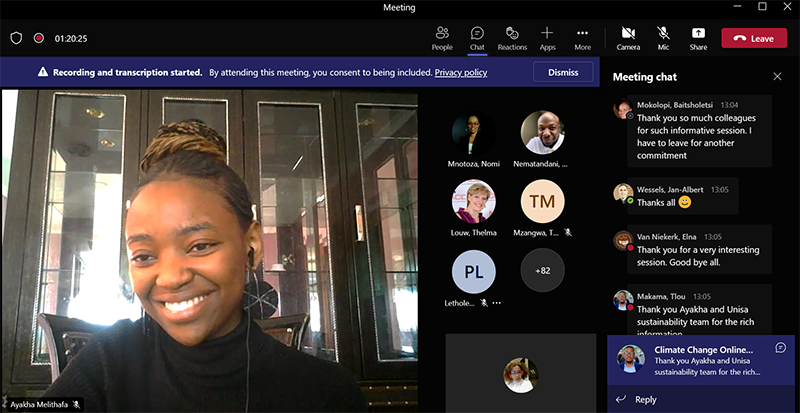
Attendees participating in the programme
According to Melithafa, South Africans are privileged to have education as a solution to the problems the country is facing. "It starts with education and awareness." She however lambasted the kind of education the country provides. "If I can put it bluntly, schools are not doing enough work. Today young people are sitting with impractical qualifications," she noted. "We need career advice that is relevant to our realities – degrees that can make a difference and not only to learn outdated subjects." Melithafa believes that universities can start on a systematic level and review their policies to make a difference and challenge low levels of climate awareness in the country.
Empower young people
Challenging youth unemployment, Melithafa highlighted that young people have lost faith in the government to provide employment. She urged universities to start initiatives that can incentivise young people to recycle and boost their work experience. "Young people should not be left behind in sustainability and climate issues," said Melithafa.
Melithafa believes that young people can make a difference in solving societal issues. "We can learn from the #Feesmustfall movement and the 16 June 1976 Soweto Youth uprising." She further encouraged young people to start seeing themselves as the country. "We know exactly what we want as young people." Furthermore, Melithafa stated that it is the responsibility and duty of sustainability offices to spark climate conversations in universities and to educate students.
In conclusion, Melithafa said: "We as young people are no longer future leaders, we are the leaders of today. We need to create a society we can thrive in."
The topic of the day was Climate Change – there is no Planet B. Rendani Nematandani, a Sustainability Officer at Unisa, coordinated the programme.
* By Lesego Chiloane-Ravhudzulo, Journalist, Department of Institutional Advancement
Publish date: 2022-06-15 00:00:00.0

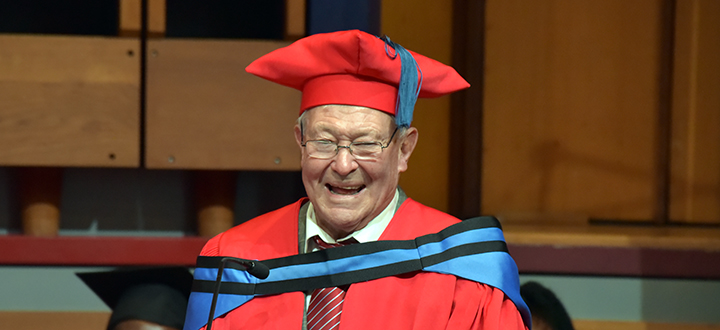 Community champion and agricultural entrepreneur extraordinaire honoured by Unisa
Community champion and agricultural entrepreneur extraordinaire honoured by Unisa
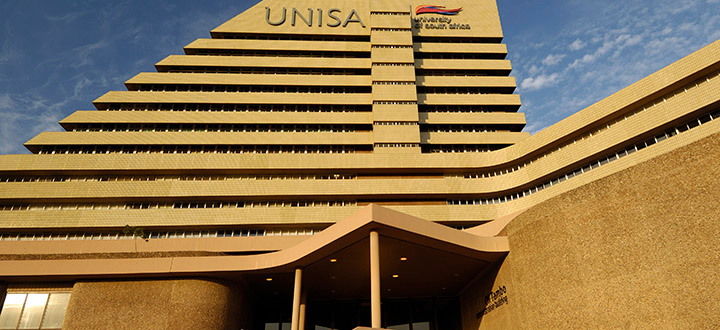 Unisa remains anchored among the waves
Unisa remains anchored among the waves
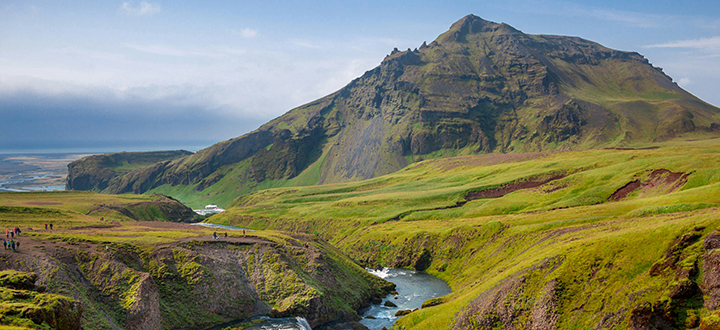 Inhlanyelo Hub explores sustainable tourism initiatives in Marico Biosphere Reserve
Inhlanyelo Hub explores sustainable tourism initiatives in Marico Biosphere Reserve
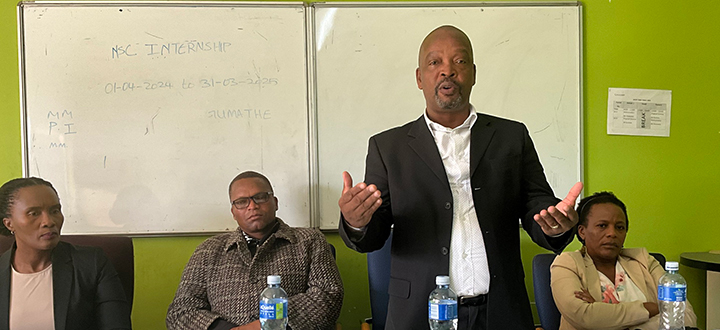 Unisa KZN Region explores extending university services to KwaMpungose community
Unisa KZN Region explores extending university services to KwaMpungose community